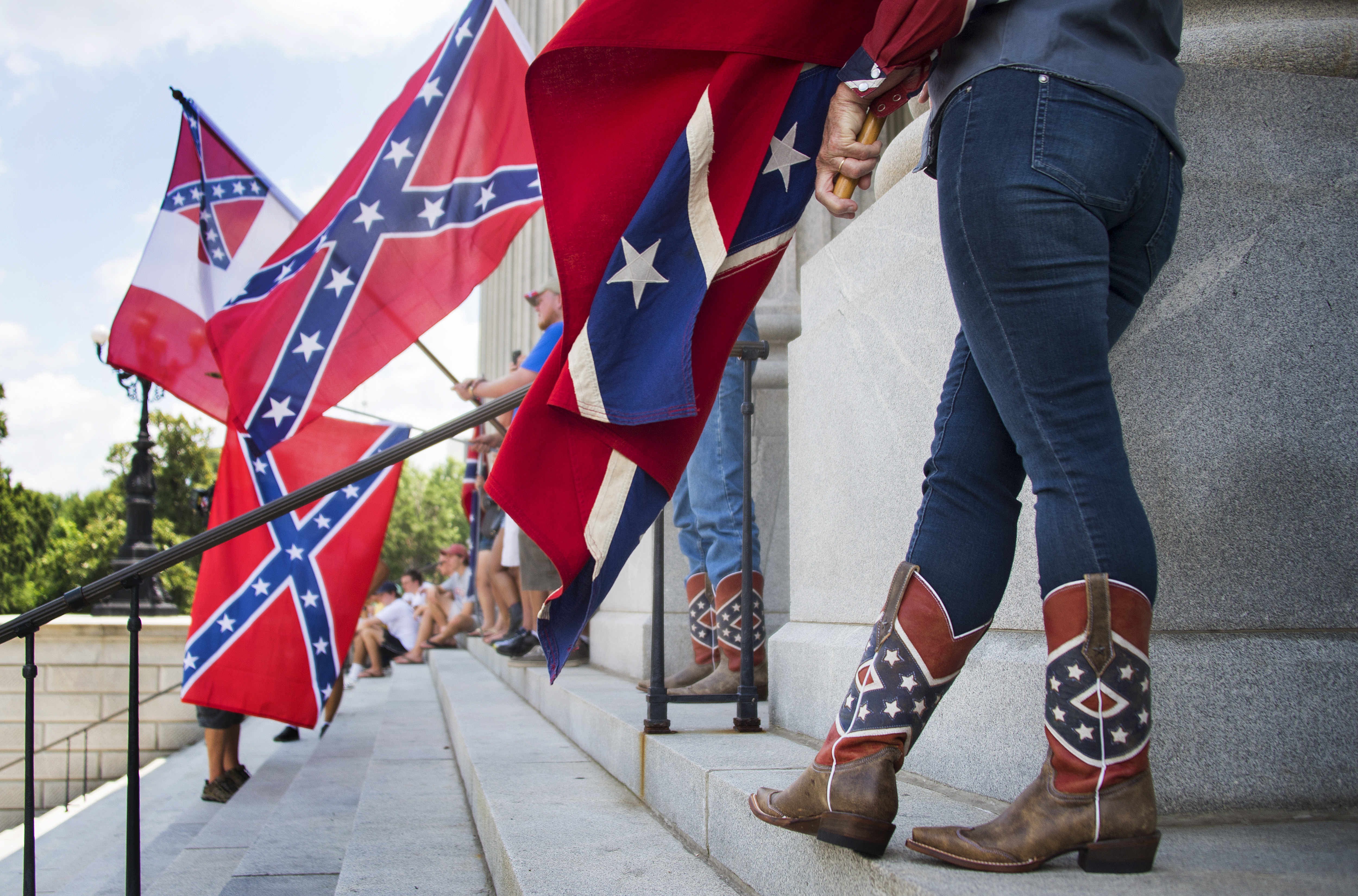Poll: 75 percent of Southern whites call Confederate flag symbol of pride. So do 11 percent of Southern blacks.


A free daily email with the biggest news stories of the day – and the best features from TheWeek.com
You are now subscribed
Your newsletter sign-up was successful
There's been a tectonic shift in the politics of the Confederate battle flag since the murder of nine black worshippers at Charleston's Emanuel AME Church on June 17. But there hasn't been much of a shift in how Americans view the flag, according to a June 26-28 CNN/ORC poll released Thursday. Overall, 57 percent of Americans say the Confederate flag is more a symbol or Southern pride than racism — about the same as in 2000 — but that number hides some sharp racial divides.
Among white respondents, 66 percent picked Southern pride, versus 17 percent of blacks. On the other hand, 72 percent of black respondents saw more racism than pride in the flag, as did 25 percent of whites. In the South, the split was starker: 75 percent of whites and 11 percent of blacks favored Southern pride, while 75 percent of blacks and 18 percent of whites called it a symbol of racism. Among all whites, those with college educations were more likely to see racism than whites without a college education, the poll found.
When it comes to what actually happened in the South after the shooting, majorities of all respondents approve: Removing the Confederate flag from (non-museum) government property wins 55 percent to 43 percent, and 50 percent backs the decisions of private companies to stop selling or manufacturing the flag, versus 47 who oppose the decision. You can find more numbers at CNN.
The Week
Escape your echo chamber. Get the facts behind the news, plus analysis from multiple perspectives.

Sign up for The Week's Free Newsletters
From our morning news briefing to a weekly Good News Newsletter, get the best of The Week delivered directly to your inbox.
From our morning news briefing to a weekly Good News Newsletter, get the best of The Week delivered directly to your inbox.
A free daily email with the biggest news stories of the day – and the best features from TheWeek.com
Peter has worked as a news and culture writer and editor at The Week since the site's launch in 2008. He covers politics, world affairs, religion and cultural currents. His journalism career began as a copy editor at a financial newswire and has included editorial positions at The New York Times Magazine, Facts on File, and Oregon State University.
-
 Political cartoons for February 15
Political cartoons for February 15Cartoons Sunday's political cartoons include political ventriloquism, Europe in the middle, and more
-
 The broken water companies failing England and Wales
The broken water companies failing England and WalesExplainer With rising bills, deteriorating river health and a lack of investment, regulators face an uphill battle to stabilise the industry
-
 A thrilling foodie city in northern Japan
A thrilling foodie city in northern JapanThe Week Recommends The food scene here is ‘unspoilt’ and ‘fun’
-
 Nobody seems surprised Wagner's Prigozhin died under suspicious circumstances
Nobody seems surprised Wagner's Prigozhin died under suspicious circumstancesSpeed Read
-
 Western mountain climbers allegedly left Pakistani porter to die on K2
Western mountain climbers allegedly left Pakistani porter to die on K2Speed Read
-
 'Circular saw blades' divide controversial Rio Grande buoys installed by Texas governor
'Circular saw blades' divide controversial Rio Grande buoys installed by Texas governorSpeed Read
-
 Los Angeles city workers stage 1-day walkout over labor conditions
Los Angeles city workers stage 1-day walkout over labor conditionsSpeed Read
-
 Mega Millions jackpot climbs to an estimated $1.55 billion
Mega Millions jackpot climbs to an estimated $1.55 billionSpeed Read
-
 Bangladesh dealing with worst dengue fever outbreak on record
Bangladesh dealing with worst dengue fever outbreak on recordSpeed Read
-
 Glacial outburst flooding in Juneau destroys homes
Glacial outburst flooding in Juneau destroys homesSpeed Read
-
 Scotland seeking 'monster hunters' to search for fabled Loch Ness creature
Scotland seeking 'monster hunters' to search for fabled Loch Ness creatureSpeed Read
